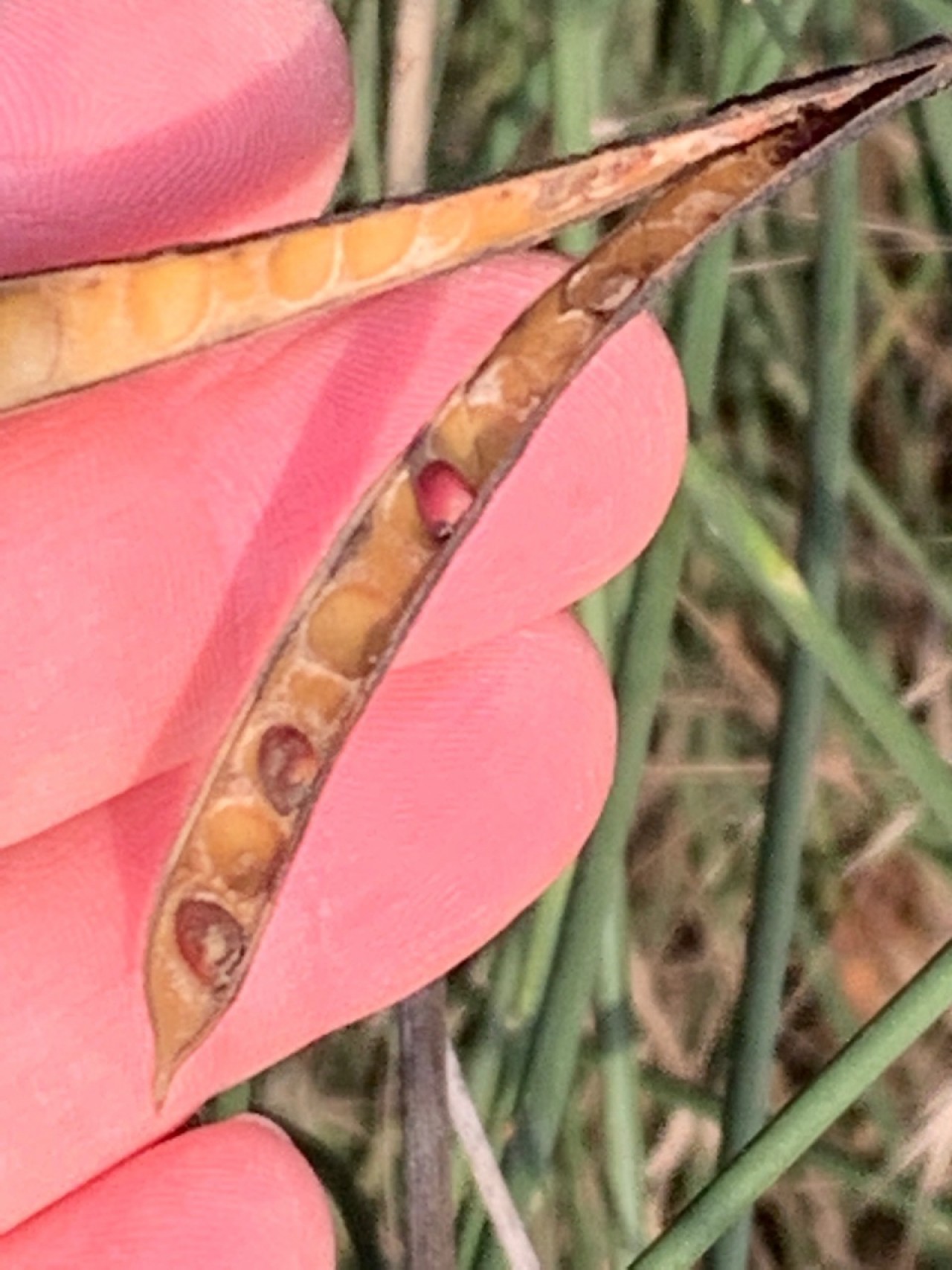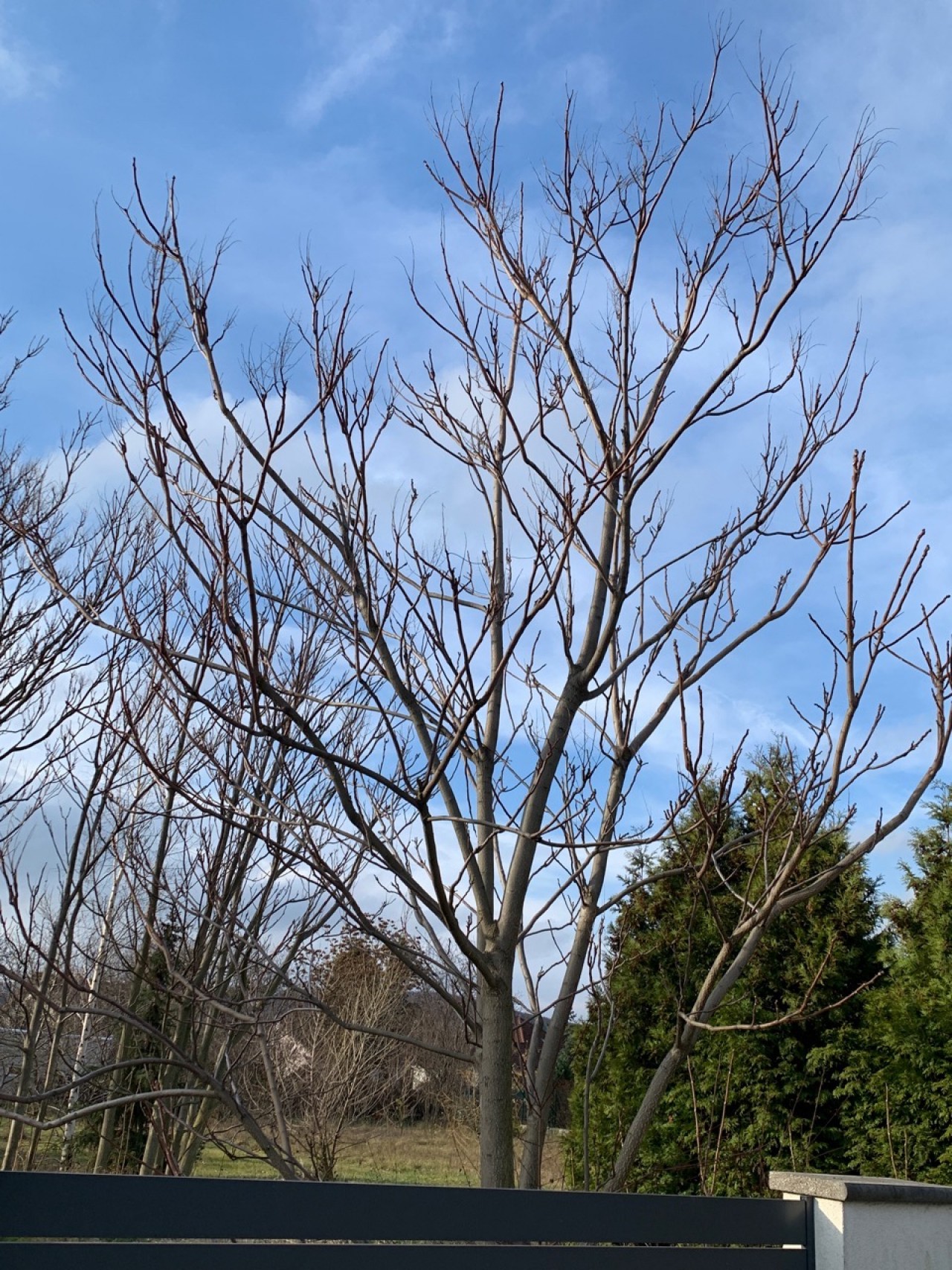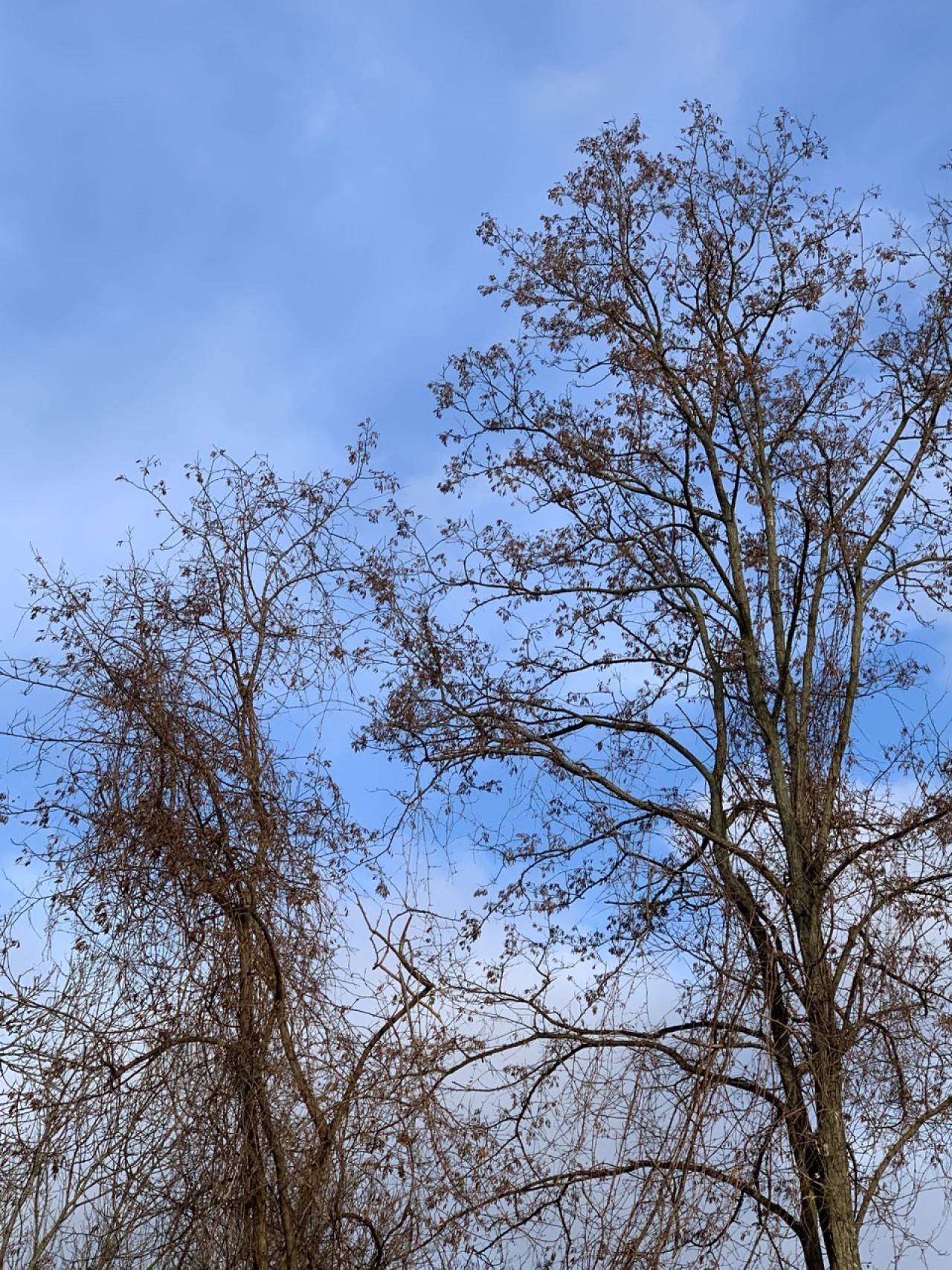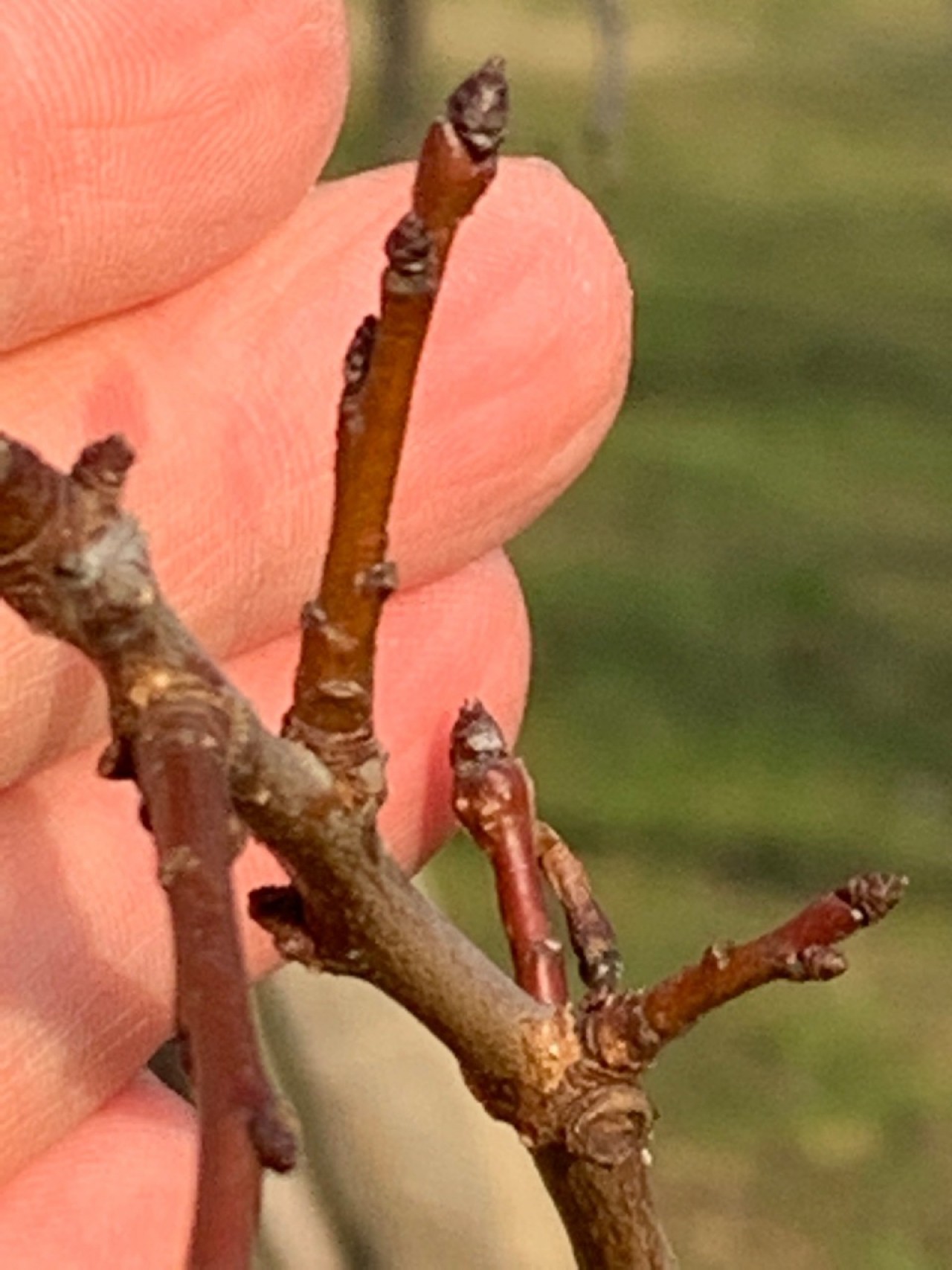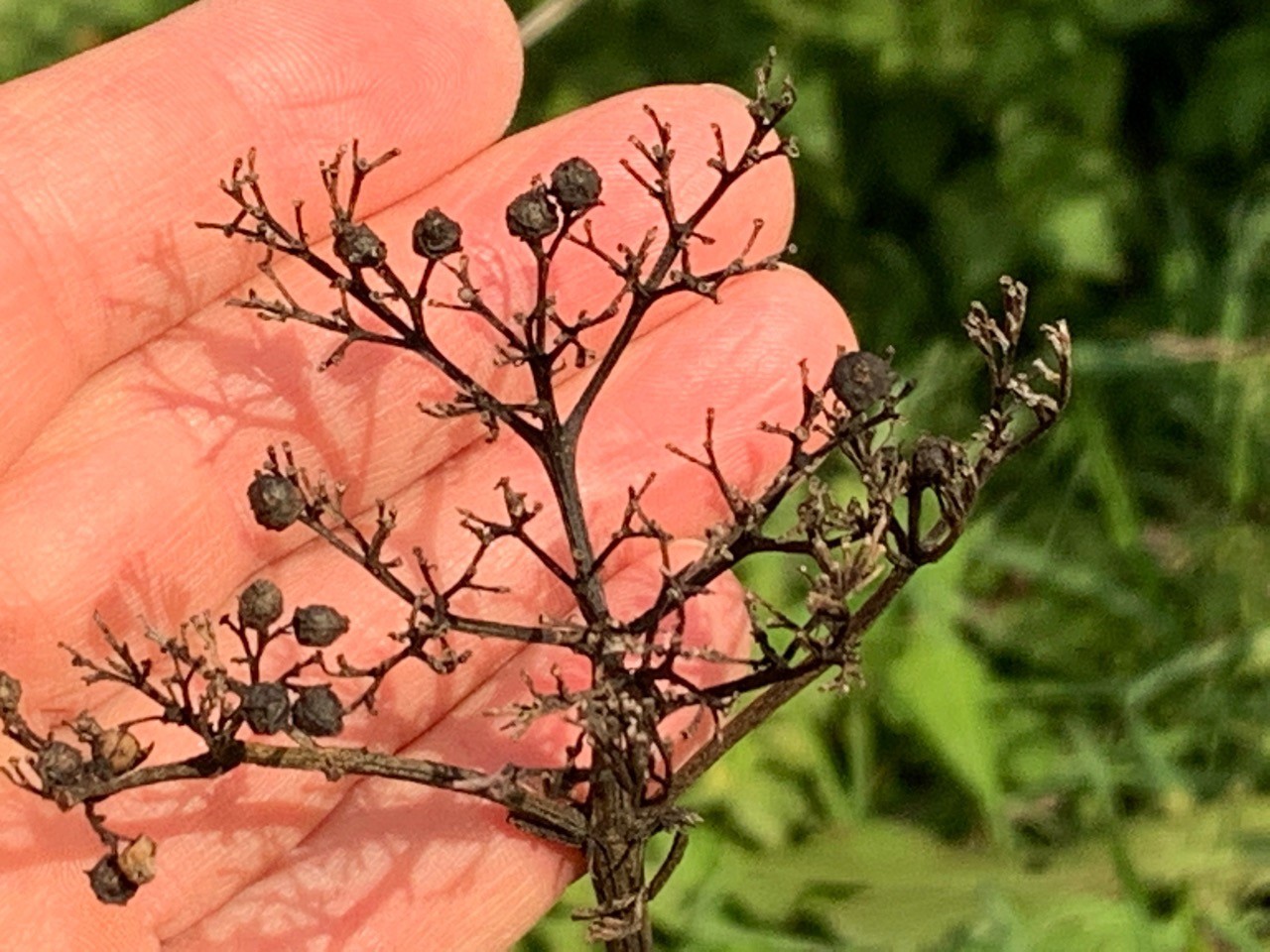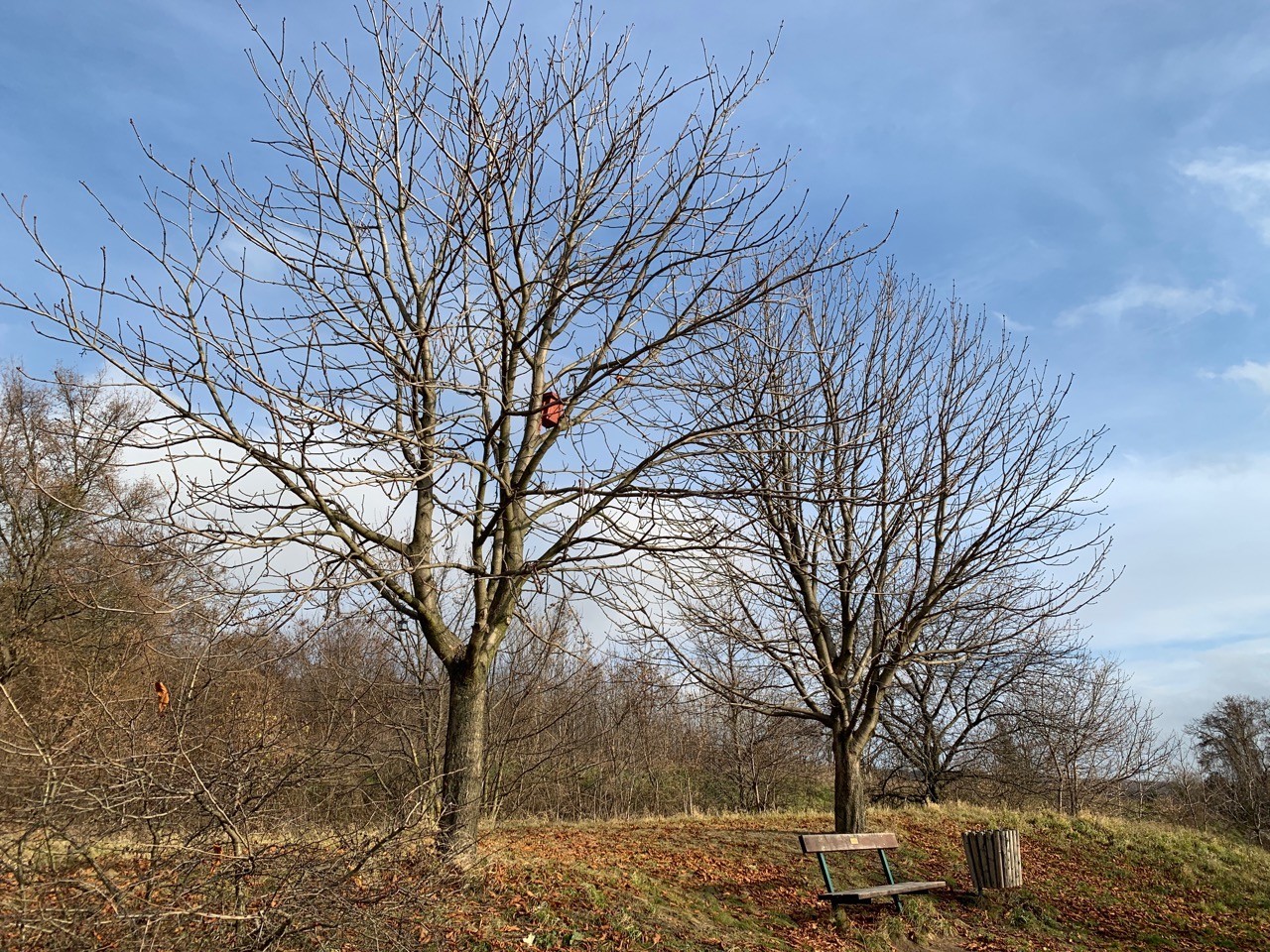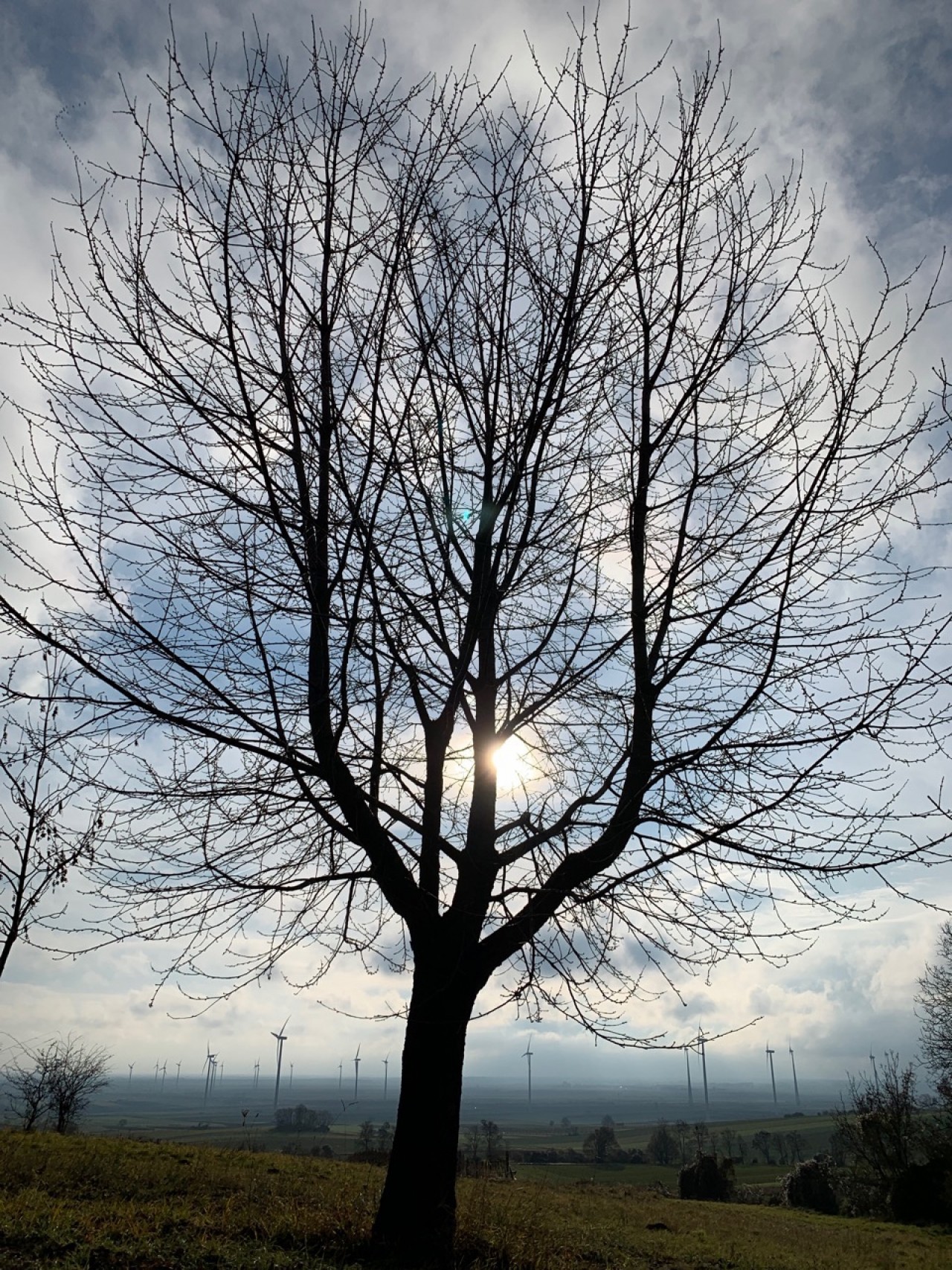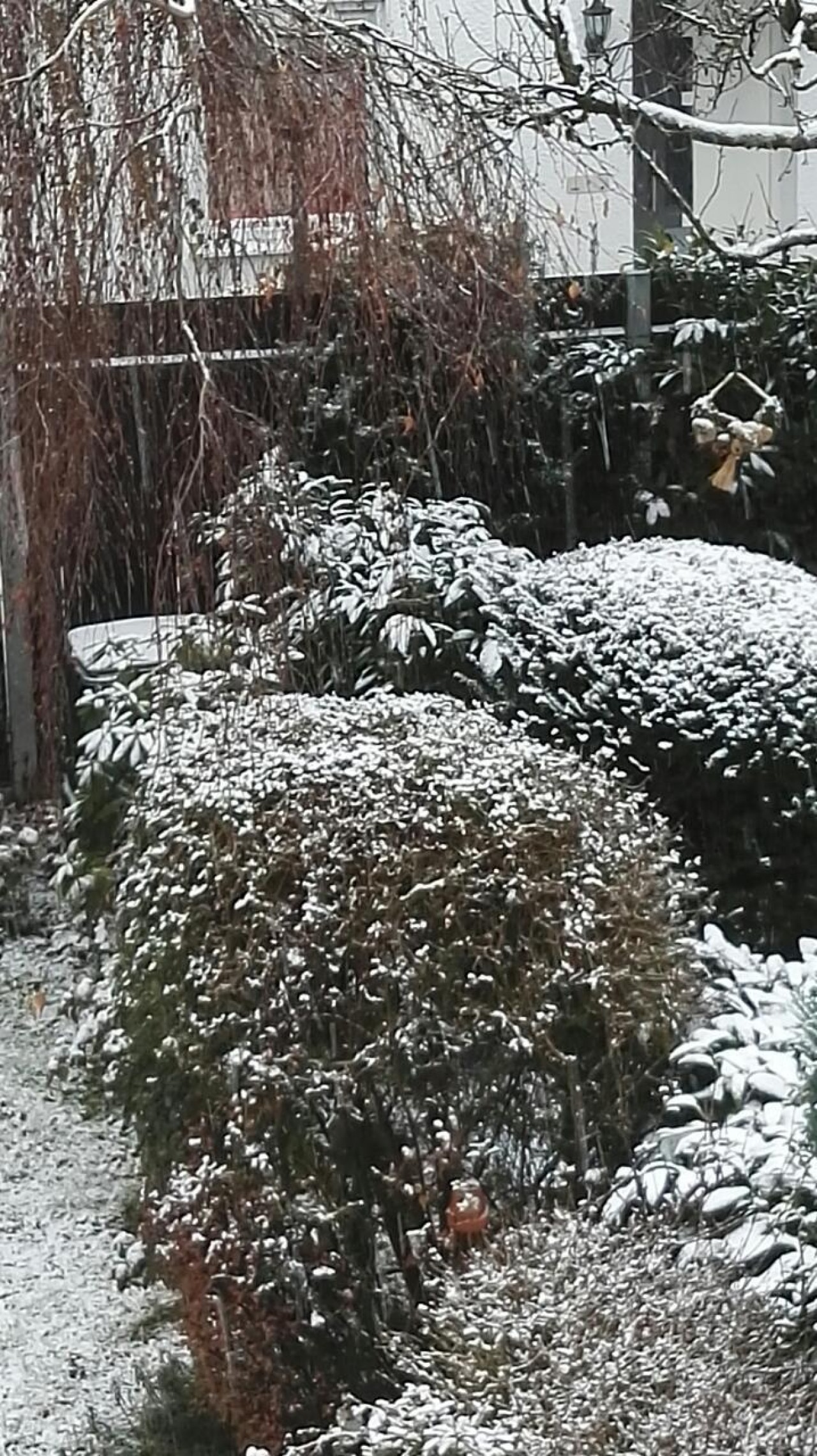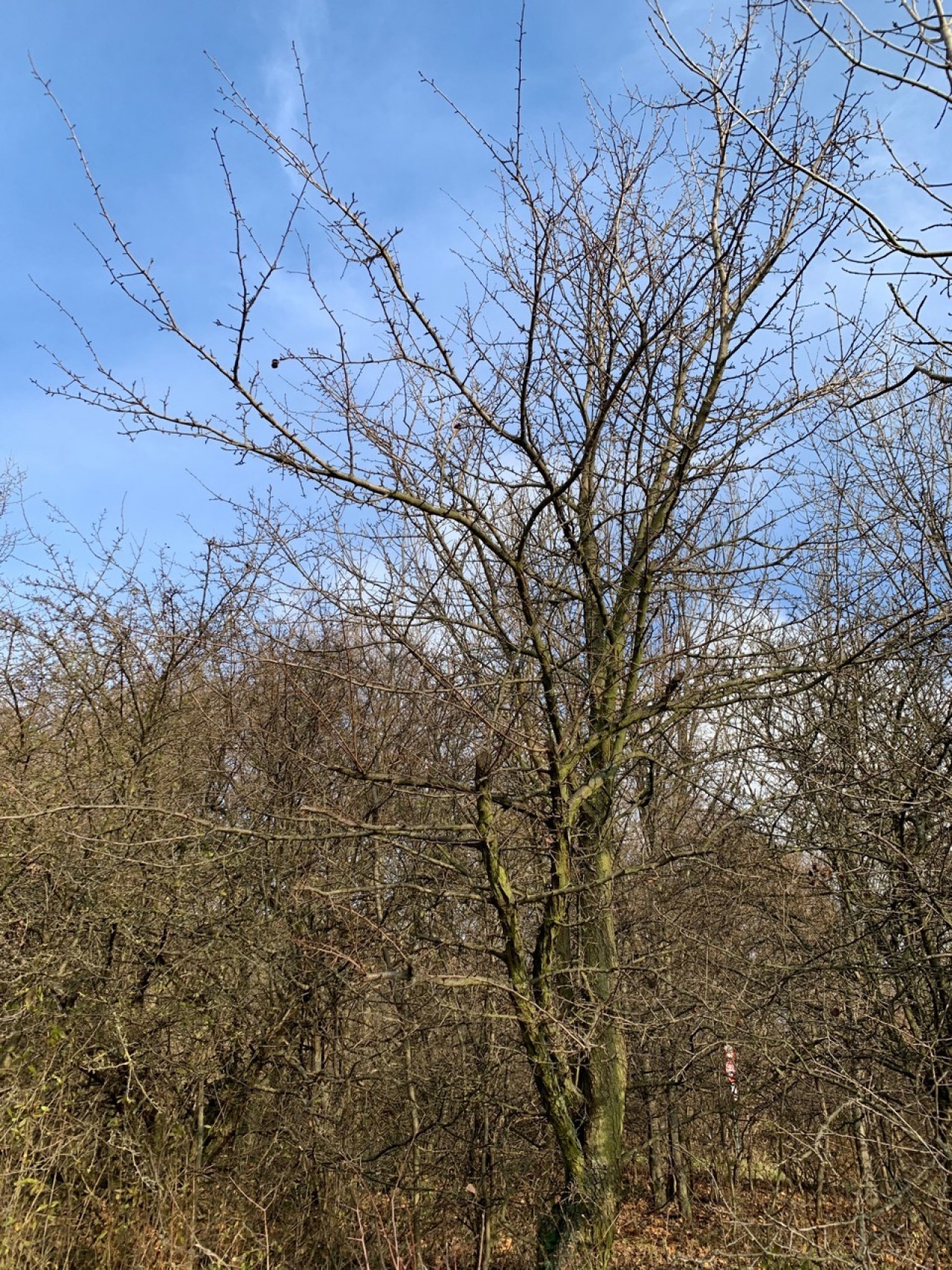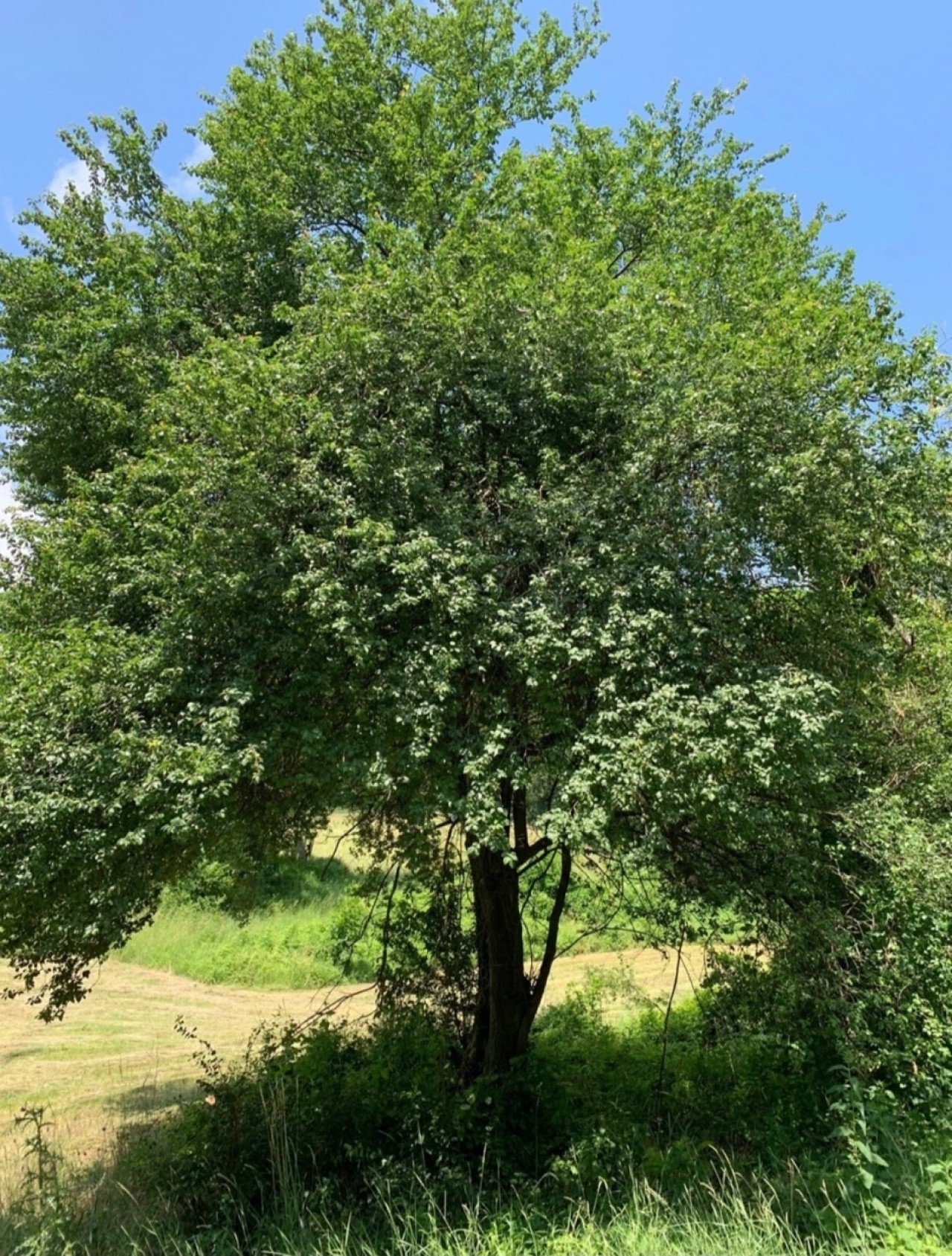Short note: This website is in Beta - we are currently building everything up but you can already find the apps to download and participate! Thank you and stay safe!
Super User
Tuesday, 08 December 2020 10:55
In den geöffneten Fruchtschoten des entlaubten Pfriemginsters sind noch vereinzelt Samen zu
In den geöffneten Fruchtschoten des entlaubten Pfriemginsters sind noch vereinzelt Samen zu finden. | Naturkalender App | 09.12.2020
Published in
Spots from all apps
Tagged under
Tuesday, 08 December 2020 10:57
Der Chinesischer Götterbaum ist ohne Blätter. | Naturkalender App | 09.12.2020
Der Chinesischer Götterbaum ist ohne Blätter. | Naturkalender App | 09.12.2020
Published in
Spots from all apps
Tagged under
Tuesday, 08 December 2020 10:01
Entlaubte Robinien und Waldreben in Winterruhe. | Naturkalender App | 09.12.2020
Entlaubte Robinien und Waldreben in Winterruhe. | Naturkalender App | 09.12.2020
Published in
Spots from all apps
Tagged under
Tuesday, 08 December 2020 10:05
Die Knospen des entlaubten Marillenbaums sind für den Frühling bereit. | Naturkalender
Die Knospen des entlaubten Marillenbaums sind für den Frühling bereit. | Naturkalender App | 09.12.2020
Published in
Spots from all apps
Tagged under
Tuesday, 08 December 2020 10:13
Reste der Früchte des noch immer nicht entlaubten Zwerg-Holunders | Naturkalender App
Reste der Früchte des noch immer nicht entlaubten Zwerg-Holunders | Naturkalender App | 09.12.2020
Published in
Spots from all apps
Tagged under
Tuesday, 08 December 2020 10:19
Die beiden Rosskastanien sind ohne Blätter. | Naturkalender App | 09.12.2020
Die beiden Rosskastanien sind ohne Blätter. | Naturkalender App | 09.12.2020
Published in
Spots from all apps
Tagged under
Tuesday, 08 December 2020 10:23
Wildkirsche ist entlaubt. | Naturkalender App | 09.12.2020
Wildkirsche ist entlaubt. | Naturkalender App | 09.12.2020
Published in
Spots from all apps
Tagged under
Tuesday, 08 December 2020 10:02
Es schneit seit 4 Stunden. Auf der Wiese bleibt der Schnee liegen,
Es schneit seit 4 Stunden. Auf der Wiese bleibt der Schnee liegen, auf der Straße ist er aber gleich weg. | Naturkalender App | 09.12.2020
Published in
Spots from all apps
Tagged under
Tuesday, 08 December 2020 10:27
Alle Blätter des wilden Birnbaums sind am Boden. | Naturkalender App |
Alle Blätter des wilden Birnbaums sind am Boden. | Naturkalender App | 09.12.2020
Published in
Spots from all apps
Tagged under
Thursday, 25 June 2020 09:31
Kriecherl hier reichlich auf einem recht hohen Baum. | Naturkalender App |
Kriecherl hier reichlich auf einem recht hohen Baum. | Naturkalender App | 26.06.2020
Published in
Spots from all apps
Tagged under
Can I use my user account in multiple apps?
Absolutely! After creating your user account, you can log in with it in all apps and projects on the SPOTTERON platform without the need to register again. You can find additional apps and topics here: https://www.spotteron.app/apps - Please be invited to download any app which you like to join and start spotting!
How can I erase my stored personal data?
GPS-Location doesn't work. What can I do?
Run your own App on SPOTTERON?
Please visit the website about the SPOTTERON Platform on www.spotteron.net
Please visit the website about the SPOTTERON Platform on www.spotteron.net
No Trackers - No Ads
This website uses no external trackers, no analytics, just session cookies and values your online privacy.
This website uses no external trackers, no analytics, just session cookies and values your online privacy.

